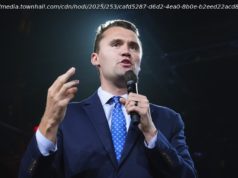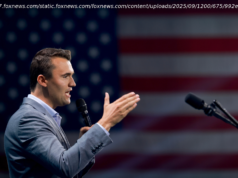Online retail giant Amazon is upping its minimum wage for all US employees to $15, including at subsidiary companies like Whole Foods.
Amazon will begin paying all its US employees a minimum wage of $15 an hour starting Nov. 1, a move that will affect more than 350,000 workers.
The online retailer made the announcement Tuesday.
“We listened to our critics, thought hard about what we wanted to do, and decided we want to lead,” said CEO and founder Jeff Bezos in a statement. “We’re excited about this change and encourage our competitors and other large employers to join us.”
The wage increase breaks down to 250,000 regular workers, as well as more than 100,000 season employees. The increase will also echo through companies owned by Amazon, such Whole Foods. People already earning $15 will also get a bump.
Shared the new Amazon $15 minimum wage with the team here at LGB3 early this morning! Best All Hands Ever!!! ???????? pic.twitter.com/RqkvHQuomO
— Dave Clark (@davehclark) October 2,2018
Beyond the company, Amazon says that its public policy team will start advocating for increasing the federal minimum wage, which is currently set at $7.25. The company would not state what the federal minimum wage should be, saying Congress should decide the that number.
Amazon is now among a handful of large retail companies that have upped their wages. Target is aiming to pay at least $15 to every employee by 2020. Walmart raised its starting wages to $11 per hour this year.
The wage hikes come amid a range of criticism of the company, whose CEO Jeff Bezos is the richest person in the world. Amazon is among the most successful companies on the planet. It became the second publicly-traded company to be worth more than $1 trillion in September.
Yet Amazon is included on a list of Washington employers with the most employees using SNAP (food stamps). Also on that list are Starbucks, Walmart, McDonalds, Goodwill, and Safeway. About 2.7 percent of Amazon’s Washington employees report using food stamps (1,366 out of 50,000).
The company has also been targeted by lawmakers such as Bernie Sanders, who recently introduced the “Stop BEZOS Act” which stands for “Stop Bad Employers by Zeroing Out Subsidies Act.” The act is named after the company’s CEO, but will affect any large company that has significant numbers of employees relying on government assistance, such as food stamps, housing, or Medicaid.
“Specifically, this bill would establish a 100 percent tax on corporations with 500 or more employees, equal to the amount of federal benefits received by their low-wage workers,” Sanders said in September.
In its hometown of Seattle, lawmakers passed — then repealed — an “Amazon Tax” that targeted local large companies in an attempt to fund affordable housing. The Seattle region faces homelessness and affordability crises as Amazon — and other tech companies — continue to boom, adding highly-paid workers from out of town, driving up costs of living.
CEO Bezos has countered a lot of criticism recently by starting a new charitable fund — using $2 billion of his own money. The Bezos Day 1 Fund will aid non-profits that help homeless families. It will also create a network of new, non-profit, tier-one preschools in low-income communities.
Information from the Associated Press contributed to this article.






